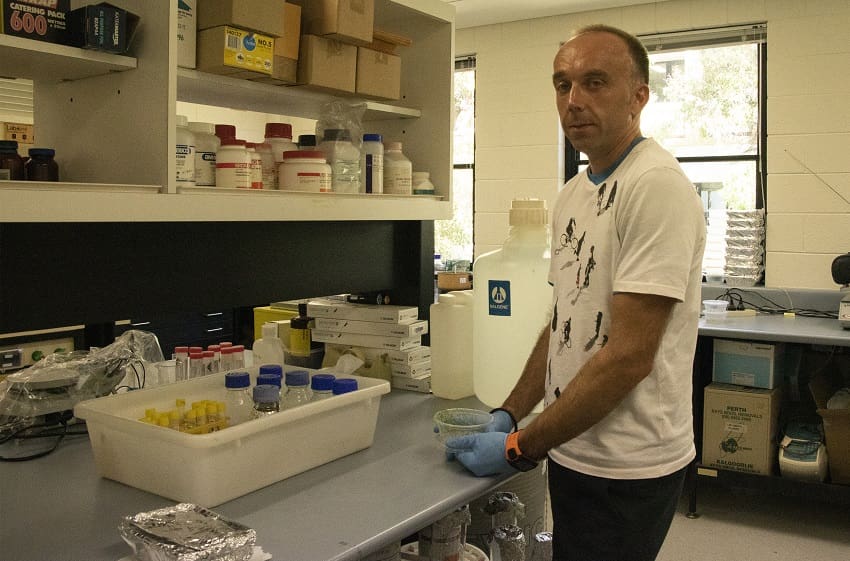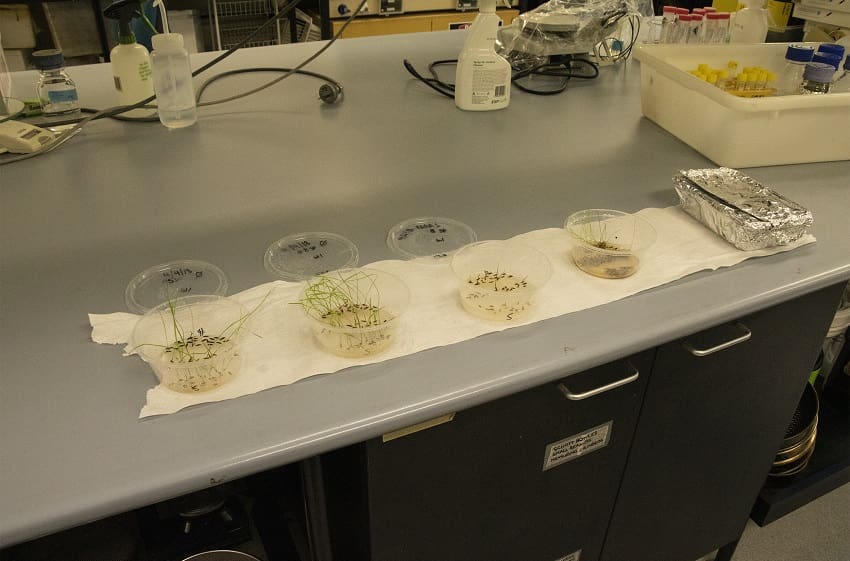Ask a WeedSmart Expert
HERBICIDE resistance testing is a valuable tool that farmers and their agronomists have been using for many years to confirm resistance and identify susceptibility.
Knowing what herbicides will and won’t work on weeds in an area helps growers plan a ‘mix and rotate’ strategy for herbicide use.
Australian Herbicide Resistance Initiative (AHRI) research fellow, Dr Roberto Busi, has been working on developing a cheap, easy and rapid screening test that farmers could one day use on-farm to help manage herbicide use.
 While this test is in its preliminary stages it is showing great promise and will potentially allow growers to conduct many more resistance tests than they otherwise might.
While this test is in its preliminary stages it is showing great promise and will potentially allow growers to conduct many more resistance tests than they otherwise might.
“In Australia, growers have access to two excellent herbicide resistance testing services through Charles Sturt University in Wagga Wagga and Plant Science Consulting in Adelaide,” he said.
“These testing services offer traditional testing where seed samples are grown in pots and then treated with different herbicides and also the ‘Quick Test’ where growers supply fresh plant samples that are ‘revived’ in the greenhouse and then treated with herbicides.”
The test Dr Busi is developing uses weed seeds placed on herbicide-laced agar. It gives results quickly, often within five to seven days, and could be easily deployed on-farm using a very basic kit and low rates of herbicide.
“The concept arose following discussions with international researchers in Japan where Syngenta’s Global Head of Resistance outlined a testing method that could be used to identify herbicide resistant weed seedlings in a week,” he said.
“This immediately got me thinking about developing a simple test that farmers could use, so when I returned home I started work on this idea in my own time.”
Starting with the ‘world champion of herbicide resistance’, annual ryegrass, Dr Busi has tested the concept using seven key herbicides – two knock-down, four pre-emergence and one post-emergence herbicides.
How will this new test help farmers?
Short answer: It will provide a quick indication whether the weeds tested are resistant or susceptible to a herbicide.
Longer answer: The intention is that the test be available as a DIY kit. This means the farmer can initially test many more samples than they might using the commercial herbicide testing services. Different patches in the one paddock could be tested to see if the same type of resistance was present. Growers could also identify products that the weeds are still susceptible to and develop a program to utilise and protect the remaining modes of action.
How does the test work?
Short answer: Weed seeds are collected and then germinated in agar with a known dose of herbicide.
Longer answer: Seeds can be collected at harvest from standing plants or after harvest from narrow windrows or chaff lines. The control (no herbicide) will show if the seeds in the sample are viable to start with. The seed placed on agar in the presence of different herbicides will either grow (resistant) or not (susceptible). After one week the grower will know more about the herbicide resistance status of the tested paddocks or patches. If resistance is suspected, a full resistance test would be the smartest thing to do.
Does the test work for the main herbicides used in ryegrass control?
Short answer: Yes, the test has been demonstrated to work for the seven key herbicides available for ryegrass control.
Longer answer: The test is under development for several herbicides including glyphosate (e.g. Round-up), paraquat (e.g. Gramoxone), trifluralin (e.g. Treflan), pyroxasulfone (e.g. Sakura), prosulfocarb (e.g. Arcade), triallate (e.g. Avadex) and clethodim (e.g. Select). Using the test procedure, it is possible to rapidly identify which seeds are susceptible or which are resistant to each of the seven herbicides.
Will this test replace other herbicide resistance screening methods?
Short answer: No. This ‘Rapid Test’ provides a very basic level of information about herbicide resistance.
Longer answer: The test is under development and much work is needed. Once resistance problems are identified using the Rapid Test, further testing would be justified to gain a better understanding of the level of resistance present and the options for control. The Rapid Test could show that different patches of weeds had evolved different resistance mechanisms and so should be tested and treated differently to keep weed numbers low.
…………………………………………………..
How to ask a WeedSmart question
Ask your questions about herbicide resistance and susceptibility testing on the WeedSmart Innovations Facebook page WeedSmartAU, Twitter @WeedSmartAU or the WeedSmart website www.weedsmart.org.au/category/ask-an-expert/
‘WeedSmart’ is an industry-led initiative that aims to enhance on-farm practices and promote the long term, sustainable use of herbicides in Australian agriculture.




HAVE YOUR SAY